In this issue
Careers News
What’s On:
• Warragul Secondary School
• Warragul Junior School
• Traralgon Secondary School
• Traralgon Junior School
CAREERS NEWS
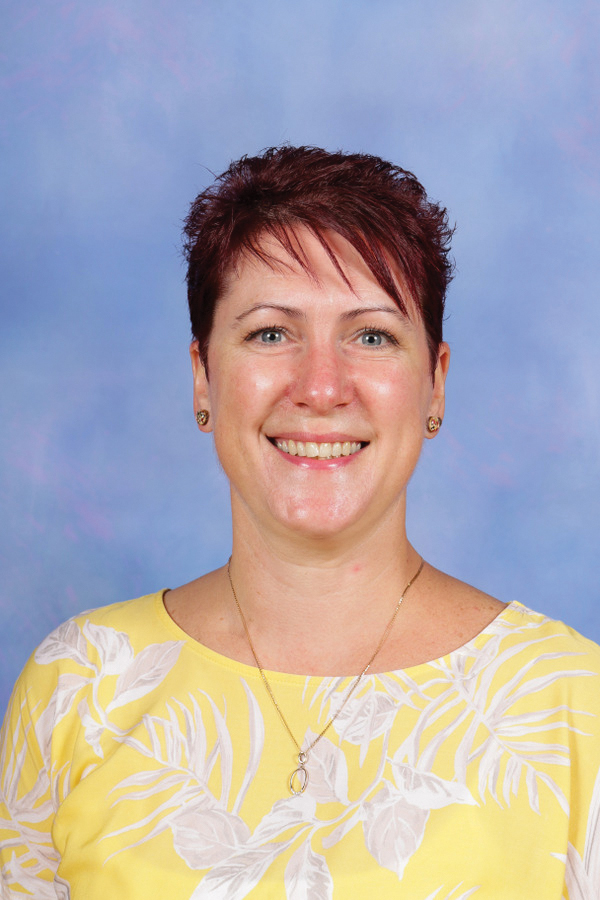
Welcome to 2023.
I hope you all had a restful break and are re-energised to begin the new school year. I know that I am looking forward to this year and I am excited about the wonderful ideas that you will bring to our conversations. As some of you may already know, I love to hear about your plans for the future and how best to map out your pathway to get there.
The idea of planning for the future can also cause anxiety and uncertainty for some of you and that is normal. My role is to walk you through these conversations and show you what options are out there and how they can be achieved. If you are unsure how to even begin doing research on where you might like to head after school, please do not hesitate to make an appointment with me and I can show you some fantastic resources as a place to begin. Have some conversations with your family and friends and begin to take notice of what the responsible adults in your lives do. Ask them how they got to where they are today and why they chose their current role or career.
Keep an open mind, seize opportunities, try new things and arrange work experience.
I look forward to working with you all this year.
Sarah Luck
Head of Careers
sluck@stpaulsags.vic.edu.au
Study Tips

With the start of the new school year, you will need to quickly get back into the rhythm of studying and preparing for assessments. This might seem like a daunting task, especially if you do not have any study techniques to rely on yet, so click below to read some handy study tips from Study Work Grow:
Study tips
The HopeFull Institute has developed a set of free worksheets for students covering a range of topics such as:
- digital detox
- examining stress
- goals (general and athletic)
- gratitude
To download the worksheets, visit Free worksheets
Open Days and Information Sessions
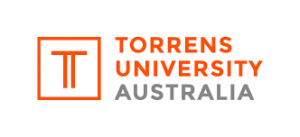
Torrens University | Virtual Open Day
31 January – 4 February
Jump online for a virtual open day to get the information you need to turn today’s dream into tomorrow’s career. Hear from academics who are leaders in their field; guest speakers who are trailblazers in their industries and Course and Careers Advisers who know the ins and outs of courses, internships, scholarships and campuses.
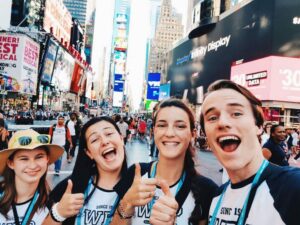
WEP | Student Exchange Information Session
7 and 15 February, 6:00 pm – 7:00 pm
Imagine making friends from all over the world, learning about yourself and the world around you and seeing sights you could only dream of! Find out more about your student exchange opportunities at WEP’s online info session.
Click here for more information: Student exchange
Click here to register: Online registration
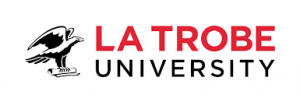
Experience La Trobe – Albury-Wodonga Campus
24 February
Experience La Trobe gives you the chance to not only see the Albury-Wodonga campus, but also to experience it by taking part in fun and dynamic workshops led by current lecturers.
Get hands-on in workshops and discover what being a uni student is really like. Bring your friends, partner or parents and find out what to expect at university.
You have the opportunity to attend workshops, lectures and seminars to meet the academics who will be teaching your course. Our student ambassadors can give you the inside scoop on Life at La Trobe and what to expect when you study at La Trobe. The event is targeted at Years 10 to 12 students.
This free, fully catered event will allow you to completely immerse yourself in our Albury-Wodonga campus and engage with students and staff.
Work Experience

If you are in Years 10 -12 you can undertake work experience during the school holidays. Work experience gives you a chance to try out a career you are considering before you tie yourself in. You will get opportunities to try skills, tour the workplace and see what the job entails. Rule out roles that will not suit your talents or lifestyle and you will also be able to meet and speak with other people working in potential roles you could fill. Below are some tips that can help you narrow down your options and make the right choice:
Think outside the box
You may already know exactly where you want to do your work experience. But sometimes it is not possible to get exactly what you want. Think about alternative places you might be able to try, just because your dream placement is not an option does not mean there are not other valuable opportunities out there.
In-person vs virtual
One thing to consider when looking for work experience is whether you want to do your placement in-person or virtually. Both sides have their pros and cons, here are some things to think about when making this choice:
- What is available near me, and does this interest me?
- What do I want to get out of this work experience placement?
- Do I have a reliable way to get to and from an in-person placement?
- Do I have the appropriate hardware and software to do a virtual placement?
If you want to know more about virtual work experience read this article by Study Work Grow: Virtual work experience.
Do some research
Before you commit to a work experience placement, it is a good idea to have a chat with your potential employer to get a feel for the place and what to expect. Make sure you know exactly what is expected of you, such as what time you need to show up and what you need to wear or bring with you. If a placement runs over a set date, make sure you can fully commit to it.
As a work experience student, you should never be expected to do work that a paid employee would be doing. Most of your day will involve shadowing, asking questions, or working on mock projects or exercises. If you have concerns, speak with a senior employee or manager, or contact me.
Looking for work experience?
Come and chat with me if you would like to explore options or get some ideas.
Careers in Science
What better way to start the year than dreaming about your future and possible careers you may be interested in? Australian National University has developed a large collection of videos that cover a range of topics from astronomy/astrophysics, physics and mathematics to science communication, environment and sustainability, to earth and marine sciences and much more!
Check them out here: Science Videos
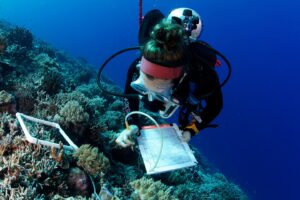
Do you have a passion for science and the ocean? Have you considered studying one of the amazing programs at the Australian Maritime College located in Tasmania? They offer courses in:
- Maritime engineering – majors are offered in marine and offshore engineering; ocean engineering; naval architecture
- Global logistics and maritime management – majors are available in logistics and supply chain management, maritime technology management and maritime business management.
To learn about their programs, go to Australian Maritime College
Careers in Health
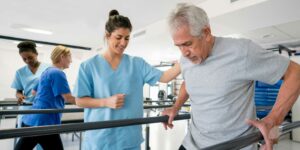
Interested in working in the health industry? There are many courses and career areas you can consider. To set early academic goals, you can review the ATAR profiles for the 2022 January intake for the following course areas:
- Nursing
- Physiotherapy, Chiropractic, Osteopathy, Clinical Myotherapy
- Podiatry
- Speech Pathology
- Occupational Therapy
ATARs listed are for people who applied for courses via the Victorian Tertiary Admission Centre (VTAC). Download the guides here: Career Resources
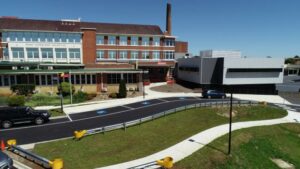
Working at a hospital
Even though most of us hope we do not have to visit them very often, hospitals offer an essential service to the wider community. But have you ever wondered what it is like to work in a hospital?
In a hospital, teams of people work together to treat and care for patients. They provide a place for people to seek treatment, undergo surgery and rest and recover until they are ready to return home. Unlike a doctor’s office, most ailments people present in the hospital with are generally severe or life-threatening. Hospitals are open 24/7, 365 days a year, as accidents and illnesses can occur at any time.
While every hospital is different, they tend to have a few things in common:
- There is a sense of urgency – most cases need to be dealt with in a timely matter, as it can often be a case of life and death.
- Safety is vital – from strict infection and disease controls to dealing with patients who can behave erratically, you will be expected to keep a clean and safe work environment.
- You will be dealing with people from all walks of life – so you will need good people skills and the ability to help people feel as safe and comfortable as possible while they visit.
Key Outcome – treating the sick and injured
Public hospitals do not operate to make a profit and while some private hospitals may make money, the main focus is to provide care for people in need. Hospitals treat all kinds of illnesses and injuries, from complex cases requiring delicate surgery to setting broken bones.
Key Tasks:
- Attend to and provide care for patients
- Keep rooms and equipment clean and sanitary
- Communicate treatment options and procedures to patients
- Rehabilitate patients and provide them with aftercare guidance
Work Environment – you can expect shift and on-site work in a range of locations
Shift work | Work on-site | Jobs in all locations, including metro, regional, and rural | Very strong job growth
As hospitals operate 24/7, they always need staff on hand to care for patients and in case of emergencies. This means there are lots of workers who need to be there outside of regular business hours as well as on holidays.
Almost all the work in a hospital is done hands-on, so it might be difficult to find roles where you can work from home. However, some roles, like administration and IT, might be able to be done remotely.
Because hospitals offer a vital service, they are found in cities all around the country, even in regional and rural areas. This means there are a huge variety of places you can find work. Hospitals in regional and rural areas also often struggle to find enough staff, so there are always lots of opportunities for work.
The role of a Maker in a hospital
The Makers in hospitals are the people who operate and maintain the equipment. This includes things like complex machines (X-rays, MRIs, CAT scanners, sonograms, etc), and IT and database systems. Makers are also responsible for keeping the hospital clean and sanitary and preparing food for patients.
- Medical Equipment Technicians
- IT/Systems Analysts
- Cleaners
- Hospital Caterers
The role of a Coordinator in a hospital
Coordinators in hospitals are the people responsible for managing teams, organising shifts and paying and ordering supplies. Hospitals also need to keep thorough records of patients, processes, and day-to-day operations, which is usually the responsibility of a Coordinator.
- Ward Managers
- Heads of Departments
- Human Resources Officers
- Payroll Officers
What types of Innovators work in a hospital?
Although they might not work in hospitals directly, there are lots of Innovators who are creating technologies and devices that are commonly used in hospitals. These include people who design prosthetics, implants, and mobility devices, develop software to help doctors diagnose illnesses and create care plans, engineer medical equipment to be faster and more accurate and develop and test new pharmaceuticals.
- Medical Equipment Designers
- Biomedical Engineers
- Pharmaceutical Development
How do we expect working in a hospital to change in the future?
There are lots of advances happening in medical technology, with machines that can perform surgery, 3D printed prosthetics, gene-editing technologies, and AI that can detect abnormalities in scans more accurately than the human eye. Advances in healthcare mean people are getting sick less often, but also living longer, so there will be more focus in the future on caring for an aging population.
Despite this, healthcare is still such a human-centric industry. While some tasks will become automated, there will always be a demand for personal care. People will be needed to provide emotional support and advice during tough times, as well as to create and maintain equipment and technology.
Scholarships

How much difference could a scholarship make?
As much as we like to think it is, university is not necessarily accessible to everyone. One of the common barriers stopping people from accessing higher education is the cost. But this is where scholarships come in.
The purpose of scholarships is to provide students with extra funding, helping them to access university when they might not have been able to before. But just how much difference could a scholarship make? Read on to find out.
How much impact will a scholarship have?
The exact impact of a scholarship will depend on a few factors, including how much it is worth and how much support you need.
Say you are looking to study, but can’t afford the costs of textbooks and a laptop. In this case, a scholarship worth a few hundred or thousand dollars as a one-off payment would be ideal.
If you cannot afford accommodation and need to move away from home to study, you will need a scholarship that either offers tailored support for accommodation, or one that is worth a bit more money.
The best thing is there are tons of scholarships out there that offer a variety of different kinds of support. And they are available for lots of different needs.
In a lot of cases, it can make the difference between attending university and not being able to go at all.
Scholarship success stories
But you do not just have to take our word for it. There are lots of stories about there from real students about how a scholarship helped them to achieve their study goals.
Sara Salmeron was a recipient of the Radford Foundation Second Chance Scholarship at La Trobe, and being awarded the scholarship helped her to “cut back on [her] work hours and dedicate more time to studying, completing assessment tasks and, most importantly, exam preparation”.
Receiving a scholarship from the University of Melbourne helped student Claudia Cox move to Melbourne from a small community, taking financial pressure off her and her parents.
Clinton Tran was able to afford to continue his studies at Griffith after the COVID-19 pandemic meant he and his parents no longer had jobs.
And Jacqueline Orme was able to cut her transit to UNSW by three hours after receiving a scholarship that helped her to afford on-campus accommodation.
Find out more:
Some scholarships you may be interested in:
ANU Tuckwell Scholarship Program
Open: 1 March 2023
Closes: 3 April 2023
Value: $24,700 AUD per year
University of Melbourne Hansen Scholarship
Open: 3 February 2023
Closes: 30 March 2023
Value: Up to $108,000 AUD
ACU Law – Equity Scholarship
Open: Now
Closes: March 1, 2023
Value: $5,000 AUD
University Spotlight
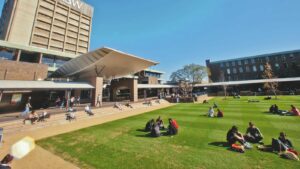
University of NSW (UNSW)
Find out everything you need to know about studying, living, support and more at UNSW in our latest university spotlight.
Campuses and Access
UNSW occupies a very generously sized campus located in Kensington, right near the heart of the Sydney CBD, and it’s easily accessible by bus and light rail. There is some on-campus parking, but it is not free and may be tricky to access. There is also a smaller campus not far away in Paddington which houses the specialist Art and Design facility and there are shuttle buses that run between the campus and a night shuttle bus as well.
The size of the Kensington campus means it can be difficult to navigate at times. The campus is on a slope, with a fairly intensive walk with several sets of stairs between the lower and upper campus. It takes around 15 minutes to walk from one end of the campus to the other.
Most of the buildings on the Kensington campus are accessible by wheelchair and multi-storey buildings contain lifts for access to higher floors. Because of the huge size and sloping nature of the campus, getting around can be difficult, particularly for people with a disability. You can view an accessibility map of the campus here.
Online Learning
As UNSW only offer seventeen online courses, and these are all for postgrad students, you might struggle to find a flexible online learning option for undergraduate entry. Most courses offered in a blended mode (a mix of online and on-campus) are also postgrad.
If you are looking to study at an undergraduate level at UNSW, you will probably need to study on campus.
Study Options
UNSW offers undergraduate courses in all the standard study areas and is one of the only universities in Australia with an undergraduate Medicine program.
UNSW offers certain double-degree combinations that allow you to fast-track your studies. You can generally commence study in any term of the year (excluding the summer term).
The academic year is split across three terms (trimesters), running roughly from mid-February to early December, with two-week breaks between each term. A short optional summer term is also offered from early January to early February. No classes are run over the Christmas to New Year period. Standard teaching hours are Monday to Friday, 9:00 am to 9:00 pm. You can view the academic calendar for the year here.
There is little flexibility in course offerings, and subjects can only be taken in the terms they are offered, which is at the discretion of the university. All students typically take subjects in a set order, and most courses are made up of core subjects (including your major or minor), plus some elective subjects. Course subjects and structure can be viewed in the course handbook.
Accommodation and Living
UNSW offers a variety of both on- and off-campus accommodation options catered to students. There are seven colleges and four apartment units operated by UNSW, as well as five additional affiliated colleges and two affiliated apartments.
Accommodation places are limited and competitive, so it is recommended to apply as soon as possible, even before results are released. Applications to some colleges also require additional documentation, including references, academic transcripts and a letter of application – you must also attend an interview before being offered a place.
Sizes vary from studio to multi-bedroom options. 2023 prices vary between $150 to $797.70 per person per week, depending on size and location. Some accommodation options offer catering and cleaning services. The fees for all colleges and apartments include all utility bills – electricity, water and internet (Wi-Fi).
In 2023, only yearly contracts are offered. Students must reapply for accommodation at the beginning of each year. There is no accommodation guarantee for first-year students.
You can see all accommodation options and application processes here.
Living off campus in Sydney, particularly in the suburbs around UNSW, can be incredibly expensive (the current median rental price for an apartment in Kensington is $575 per week), and rental options are generally highly competitive. More affordable options further away can mean a very long travel time to and from campus.
Campus and Teaching Facilities
You will find lots to do on campus, and the Kensington campus has a wide variety of cafés and eateries. Other facilities include grocery stores, bookshop, pharmacy, physiotherapy studio, dentist, optometrist and a fitness and aquatic centre. There is a large library on-campus, as well as a separate law library. The Paddington campus also has a small library.
The Kensington campus has several specialist teaching buildings, particularly for STEM areas, including labs and research facilities. The Paddington campus has been purpose-built for art and design teaching, including fully equipped studio spaces, production facilities and media labs, so you will be learning in some of the best facilities on offer.
Student Support
UNSW offers a variety of student support services, ranging from Equitable Learning Services, academic support, career and professional development support, and health and wellbeing services.
All of this information is easy to find and access on their website here.
Tours and Information Sessions
You can take a virtual tour of the Kensington campus here. They also run in-person tours on Saturday for the Kensington campus and Thursday for the Paddington campus.
UNSW run on campus information events for future students sporadically throughout the year. You can view the upcoming calendar of events here.
Next Steps
If you are interested in study at UNSW and want to find out more information, the best way to do this is to contact them, either by phone on 1300 UNI NSW (1300 864 679), through online chat, or email. They also have a comprehensive list of FAQs.
UNSW also run one Open Day a year, scheduled for September.
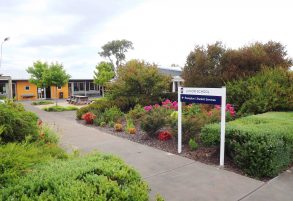
WHAT’S ON Traralgon Junior School
FEBRUARY 8 February No Preps Swim Trials Years 3 to 6 10 February Leaders’ Induction and Prep Crossing of the Hats Ceremony, Traralgon Campus Gymnasium, …
WHAT’S ON Traralgon Junior School
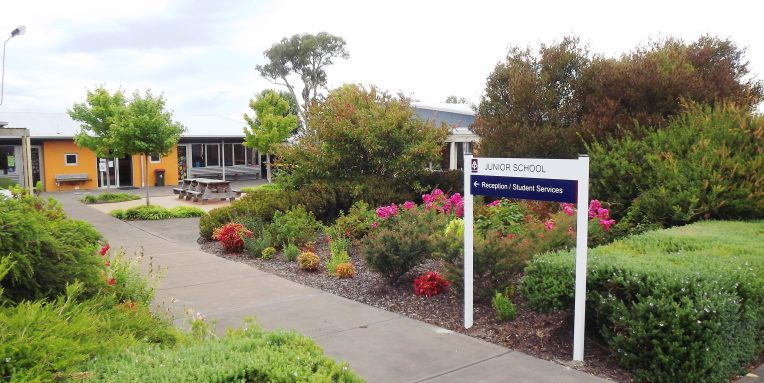
FEBRUARY
8 February No Preps
Swim Trials Years 3 to 6
10 February Leaders’ Induction and Prep Crossing of the Hats Ceremony, Traralgon Campus Gymnasium, 2:30 pm
14 February District Swimming
15 February No Preps
ELC Wildlife Xposure Incursion
ELC Welcome Picnic
17 February Family Fun and Information Evening, 6:00 pm to 7:30 pm
21 February Year 5 Camp Sovereign Hill begins (four days)
22 February No Preps
28 February ELC to Year 2 Parent Evening: Learning to Read, 7:00 pm
MARCH
1 March ELC to Year 6 Parent Student Teacher Interviews (PSTIs), 3:45 pm to 8:00 pm
2 March ELC to Year 6 Parent Student Teacher Interviews (PSTIs), 3:45 pm to 6:00 pm
9 March Athletics Carnival
13 March Labour Day Public Holiday
14 March Year 6 Urban Camp begins (Four days)
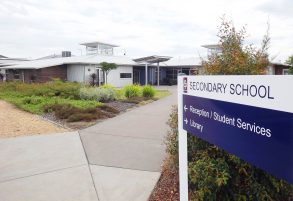
WHAT’S ON Traralgon Secondary School
FEBRUARY 9 February SEISA Summer Sport, Intermediate/Senior, Round 1 2023 Year 7 Parent Information Evening with YSafe, 7:00 pm to 9:00 pm 14 February House …
WHAT’S ON Traralgon Secondary School
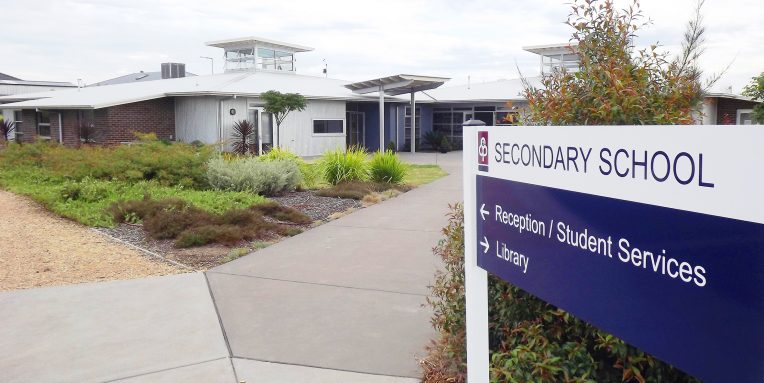
FEBRUARY
9 February SEISA Summer Sport, Intermediate/Senior, Round 1
2023 Year 7 Parent Information Evening with YSafe, 7:00 pm to 9:00 pm
14 February House Swimming Carnival
15 to 17 February Year 7 Camp
16 February SEISA Summer Sport, Intermediate/Senior, Round 2
23 February SEISA Swimming Carnival
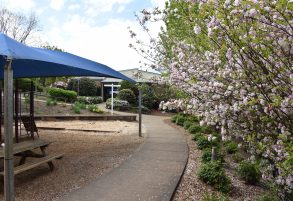
WHAT’S ON Warragul Junior School
FEBRUARY 6 February St Paul’s Parent Prayer Group, Prideaux Centre, 9:00 am Welcome and Information Evening, Years 3 to 6, Junior School Gymnasium, 7:00 am to …
WHAT’S ON Warragul Junior School
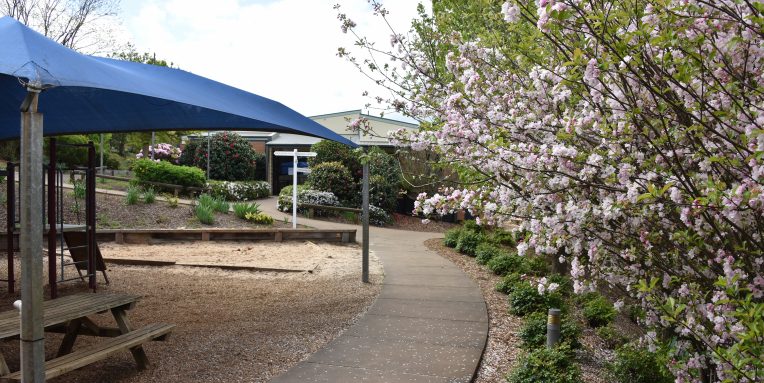
FEBRUARY
6 February St Paul’s Parent Prayer Group, Prideaux Centre, 9:00 am
Welcome and Information Evening, Years 3 to 6, Junior School Gymnasium, 7:00 am to 8:30 pm
8 February No Preps
Year 6 Leadership Day
10 February Years 3 to 6 House Swimming Carnival, 11:30 am to 3:00 pm
13 February Warragul Junior School Leaders’ Induction Service, 2:20 pm to 3:15 pm, Junior School Gymnasium
Welcome and Information Evening, Prep to Year 2, 7:00 to 8:30 pm
15 February No Preps
22 February No Preps
24 February Family Welcome Barbeque Evening, ELC and Junior School, 5:30 pm to 7:00 pm
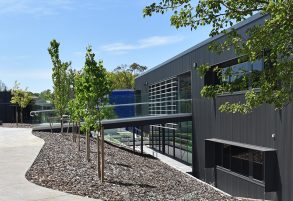
WHAT’S ON Warragul Secondary School
FEBRUARY 3 February Years 7 and 8 Swim Trials, Moe Outdoor Pool, 11:00 am to 3:00 pm 6 February St Paul’s Parent Prayer Group, Prideaux Centre, …
WHAT’S ON Warragul Secondary School
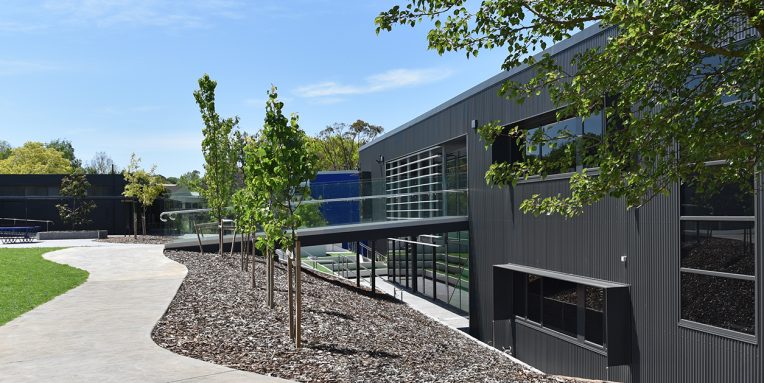
FEBRUARY
3 February Years 7 and 8 Swim Trials, Moe Outdoor Pool, 11:00 am to 3:00 pm
6 February St Paul’s Parent Prayer Group, Prideaux Centre, Warragul Junior School, 9:00 am
7 February Year 11 English Incursion “12 Angry Men”, Science Centre Lecture Theatre
8 February Swim Training, Warragul Leisure Centre, 7:00 am to 8:30 am
9 February SEISA Summer Sport, Intermediate/Senior, Round 1
10 February Year 7 Immunisations
10 and 11 February SEISA Leadership Weekend (Prefects), Newhaven College, Phillip Island







